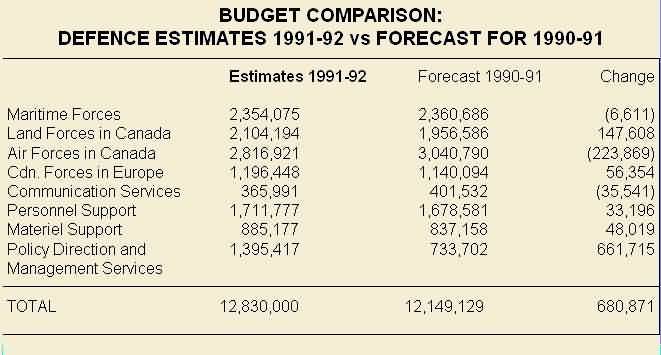Home | Back to TWR Index | Email | The Editor | History | Gulf War Index
In this issue: The Made-In-Canada Peacekeeping Flap & The Rule Of Int'l. Law

As it proceeds with the review, the Conservative government will benefit from the most dramatic change in the international security environment of the century. To what extent and in what ways the Gulf War has changed things is still unclear. There is no denying however, that we have in the last decade of the twentieth century reached the watershed in international relations the world has strived for since the close of WW I — respect by the international community for the international rule of law.
It was Gorbachev who most lucidly in recent times advocated the "rule of law" in international relations. In a speech before the United Nations on December 7, 1988, the anniversary of the bombing of Pearl Harbour by the Japanese, and in announcing the withdrawal of the U.S.S.R. from Afghanistan the then chairman of the Soviets said as follows: "Gentlemen, the concept of comprehensive international security is based on the principles of the U.N. Charter and the assumption that international law is binding on all states... Our ideal is a world community of states with political systems and foreign policies based on law." He then announced dramatic reduction in his armed forces to give meaning to his words.
Coming from a Communist head of state that speech was revolutionary, and it left a number of skeptics. Since then, the Soviet leader has been true to his word. The latest proof was his support of the United Nations and the United States-led coalition in their efforts to prosecute the military enforcement of the U.N. resolutions against Iraq. That support included the use of force, when all other measures had failed, to secure respect of the rule of international law which Saddam Hussein had breached by his invasion of Kuwait.
The magic word here is "force". There has been a misunderstanding even by members of my own party (Liberal) of its use by the U.N.
Volume 5, Number 10 March 6, 1991
Comment:
WITH THE GULF AS PROLOGUE
War holds an irresistible fascination for us all. Television has added the magic of instant replay and the punditry of professional analysts. With an inexhaustible source of raw material for public debate, the ability of amateur strategists, skillful as Monday morning quarterbacks or Sunday morning Toe Blakes, to bring homespun perspectives to world scale conflicts knows no bounds.
The net beneficiary of this renewed public interest is National Defence. The Gulf War more than any other recent event has brought Canadians to look at themselves as international players. Preliminary readings would indicate that they didn't like what they saw. They observed a middling attempt by a patently unequipped Mulroney government to occupy centre stage in a world conflict without the wherewithal to be credible. As a result, Mulroney may be the only national leader on the victorious side whose public profile at home will not improve.
Canadians, even those who disagreed with our involvement in the Gulf, were shocked to see what was paraded out initially as being the best we could offer. The government's reaction was evident in last week's budget: the Minister of Finance was kind to defence. Not generous, but kind. We now must wait and see if this renewed interest will translate into a will to get on with the long awaited defence policy review.
